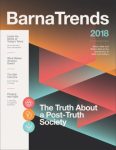Twenty-some years ago, I served as a counselor at a weeklong Christian summer camp for abused and neglected children. For chapel, one evening, a puppet evangelist told the story of Abraham’s willingness to sacrifice Isaac (Genesis 22) as an example of the Father’s willingness to sacrifice His Son for us.
A graduate student in theology at the time, I remember thinking there was something wrong with the ventriloquist’s analogy. Wouldn’t Jesus be like the ram God provided, not Isaac? I thought. Then I noticed how quiet, still, and wide-eyed the kids were. Slowly, I realized that many of these kids had witnessed horrific acts of violence perpetrated by their parents or guardians against them and their siblings. In fact, over the course of five years as a counselor, two of my campers — brothers — had witnessed their dad murder their mother and kill himself.
In my opinion, this well-meaning puppet evangelist failed to communicate because he didn’t understand the audience he was preaching to. Ministerial education focuses on teaching pastors the proper exegesis of the biblical text, but in my experience, we need more help in the proper exegesis of our culture.
That’s why I’m an avid reader of public opinion research. When Pew, Gallup, Barna, or similar organizations release a new study, I pay attention. Credible data on what people believe and value helps me better understand the people and culture God has called me to serve as a witness to the gospel.
Obviously, public opinion doesn’t determine what you and I say. The Bible is God’s inspired, inerrant Word. Our message about Jesus Christ comes from its pages, not from the pages of a newspaper or website.
On the other hand, public opinion can help us shape how we share our message. Think of how the apostle Paul preached the gospel to different audiences in the Book of Acts. In Pisidian Antioch, Paul preached a sermon to fellow Jews in the synagogue on the Sabbath that was a master class in the exposition of Scripture (Acts 13:13–52). In Athens, on the other hand, Paul cited Greek poets more than Scripture in his dialogue with Greek philosophers (Acts 17:22–34).
What accounts for the difference? Paul knew that the Jews shared his commitment to Scripture. So, he reasoned from the Bible with them. On the other hand, he knew that Greeks didn’t share his commitment to Scripture, so he reasoned to the Bible with them. In both cases, what Paul said was substantially the same, but how he said it was radically different.
Late last year, Barna Group released Barna Trends 2018, which is chock-full of good information about how contemporary Americans both inside and outside the church view culture, life and faith. I was particular impressed by the feature article, “The Truth about a Post-Truth Society.” It identified five reasons why Americans have such a hard time agreeing about anything: (1) distrust of authority, (2) an erosion of the sacred, (3) a battle between feelings and facts, (4) unbelievable (“fake”) news, and (5) the rise of tribalism.
The challenge for pastors and church leaders is how to cultivate faith in a culture characterized by systemic distrust. We can only begin to do this when we understand the reasons for that distrust, which comes by paying careful attention to our audience’s beliefs, values and practices. The better we understand them, the better able we will be to share the gospel with them.
Unlike that well-meaning puppet evangelist, who was never invited back to camp.
 Book Reviewed:
Book Reviewed:
Barna Group, Barna Trends 2018: The Truth about a Post-Truth Society (Grand Rapids, MI Baker Books, 2017).
P.S. This article originally appeared in the March/April 2018 edition of Influence magazine and appears here by permission.
P.P.S. If you found my review helpful, please vote “Yes” on my Amazon.com review page.

